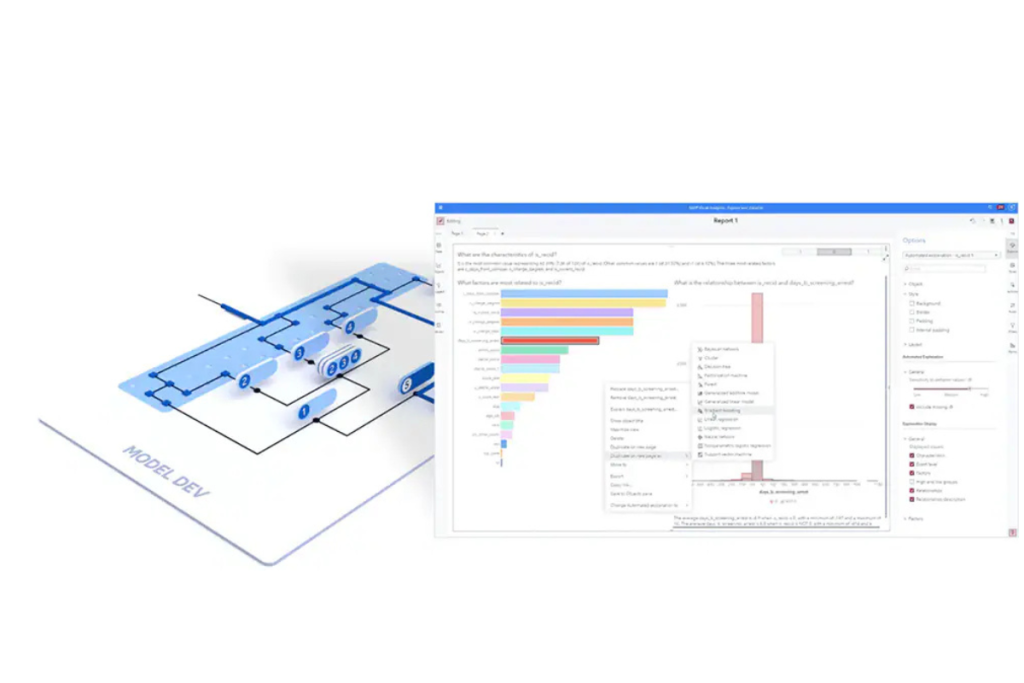AI is no longer experimental in banking. It’s now embedded in daily operations, powering everything from fraud detection and credit approvals to compliance automation.
Yet for many banks, the challenge isn’t deploying AI. It’s scaling it across the enterprise to deliver measurable and sustainable impact.
As we head toward Singapore Fintech Festival 2025, where global leaders will gather to discuss how financial systems can become more connected, resilient, and inclusive, one message is clear: Scaling AI isn’t about smarter algorithms, it’s about stronger foundations.
Why Scaling AI Stalls
Across Asia-Pacific, expectations for AI are sky-high. Nearly half of banks believe their AI investments will deliver three times ROI (IDC, 2024).
But potential doesn’t equal performance. Most initiatives remain stuck in pilot mode, with only 8% of APAC banks achieving scaled AI adoption across multiple business functions.
The barriers are interconnected and often underestimated:
- Governance & Trust: Poor data quality and inconsistent governance lead to compliance risks, bias, and eroded confidence among regulators, employees, and customers.
- Technology & Integration: Legacy systems and siloed data hinder seamless, real-time decision-making.
- People & Processes: Scaling AI requires specialized teams who combine technical expertise with deep banking knowledge. Without this blend of skills, even the best technology struggles to achieve meaningful impact.
Where AI Is Already Delivering Value
Despite these challenges, AI is already delivering tangible ROI in areas where precision and compliance are critical:
- Fraud detection – Identify threats earlier, adapt to evolving fraud tactics, and reduce manual workloads.
- Liquidity risk management – Optimize capital flows and strengthen balance sheet planning.
- Financial crime analytics – Detect suspicious activities and meet evolving regulatory demands.
Fraud detection, in particular, demonstrates how AI can enhance risk management and strengthen compliance with global frameworks like Basel III, while delivering operational efficiency.
These successes highlight two key realities:
- AI delivers measurable impact when built on trusted data foundations.
- The gap between leaders and laggards is widening as early adopters move beyond pilots to full-scale deployment.
Scaling AI also has an economic dimension. AI workloads, from fraud analytics to real-time credit scoring, are compute and storage intensive. Without the right infrastructure, costs can rise faster than benefits. Leaders are exploring cloud elasticity, workload orchestration, and hardware acceleration to balance performance and cost while meeting strict data residency requirements.
The Roadmap to Scaling AI Responsibly
To move from pilots to production, banks must focus on four priorities:
- Robust Data Governance: Establish clear accountability and ensure data is trusted and compliant. Strong governance builds the transparency and trust needed for AI to scale confidently.
- Modern Infrastructure: Deploy cloud-ready platforms that eliminate silos and support real-time, enterprise-wide data flow. This enables faster decision-making and lays the groundwork for innovation.
- Continuous ModelOps: AI models that aren’t continuously managed can quickly become liabilities, exposing banks to operational, regulatory, and reputational risks. To prevent this, financial institutions must adopt strong ModelOps practices that include ongoing monitoring, validation, and refinement. Responsible scaling also means proactively addressing model risk and cybersecurity. Threats such as adversarial attacks, data poisoning, and bias are no longer theoretical – they are real challenges with serious consequences. By embedding AI security testing, bias detection, and explainability into ModelOps pipelines, banks can ensure their AI systems remain resilient, transparent, and auditable under the highest levels of scrutiny.
- Specialized Skills: Bridging the skills gap in AI goes far beyond advanced data science. Banks that successfully scale AI are creating cross-functional teams where risk officers, compliance specialists, engineers, and data scientists work closely together to align technology with regulatory and business needs. At the same time, upskilling existing employees in areas like cloud and AI governance has become just as important as external hiring. This combination ensures that AI adoption is not only sustainable but also deeply embedded into the organization’s culture, driving long-term success and resilience.
CBTW and SAS: Scaling AI with Confidence
In our work with financial institutions across APAC and globally, CBTW, in collaboration with SAS, has seen firsthand what it takes to scale AI responsibly.
The most successful banks consistently:
- Start with governance and data quality as the foundation for every AI initiative.
- Build modern analytics platforms that enable speed, compliance, and scalability.
- Invest in cross-functional teams that align business strategy, data science, and regulatory oversight.
Through our partnership, we help banks navigate these complexities by combining SAS’s advanced analytics capabilities with CBTW’s delivery expertise and global-local reach. This ensures that AI isn’t just deployed but embedded into daily operations in a way that is secure, compliant, and future-ready.
Looking ahead, generative AI and large language models (LLMs) represent the next frontier. From regulatory reporting automation to customer engagement and CBDC integration, these technologies have transformative potential, but only if they are grounded in trusted data and explainable outcomes. Banks that lay these foundations today will be best positioned to capture the next wave of AI innovation securely.

Final Thought
The future of banking won’t be shaped by algorithms alone, but by the structures of trust and governance that make them work and make them last.
As leaders gather at SFF 2025, scaling AI responsibly will take center stage. Banks that focus on their data foundations today will set the competitive pace for the next decade.
Take the Next Step
Is your organization ready to move beyond AI pilots and deliver enterprise-wide impact? At CBTW, we help banking and finance clients build trusted data foundations and operational frameworks to scale AI responsibly and effectively.
